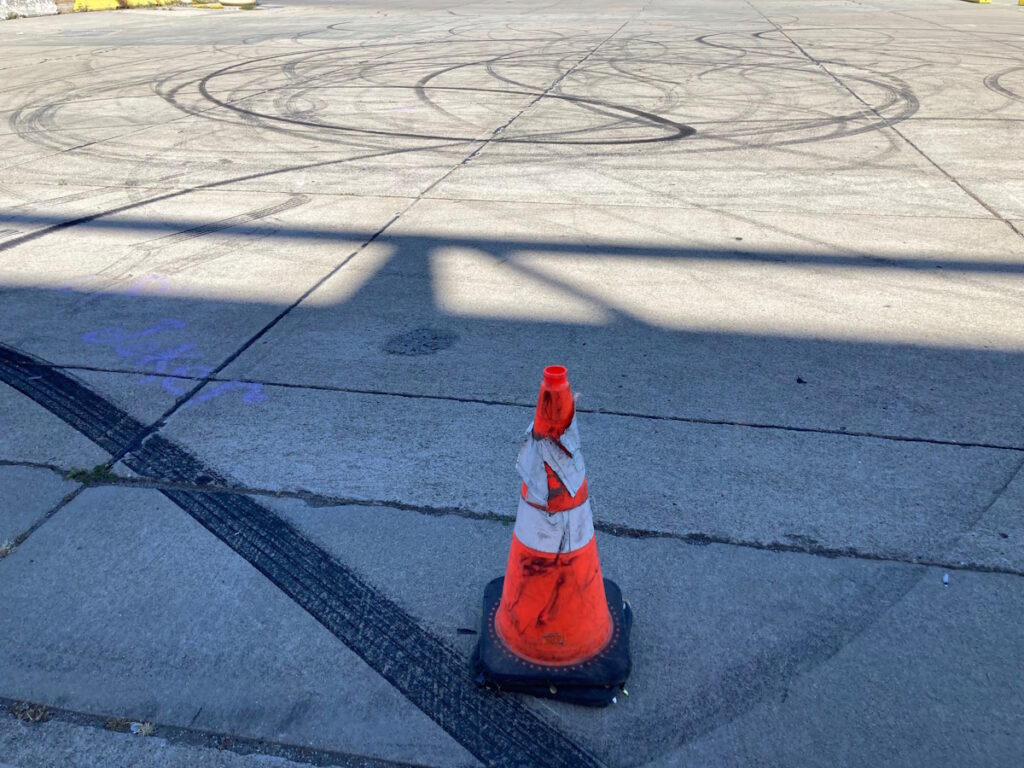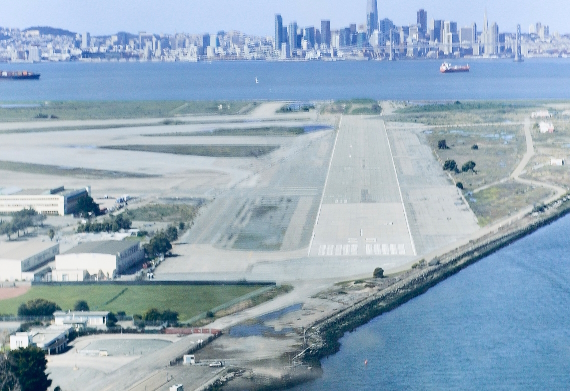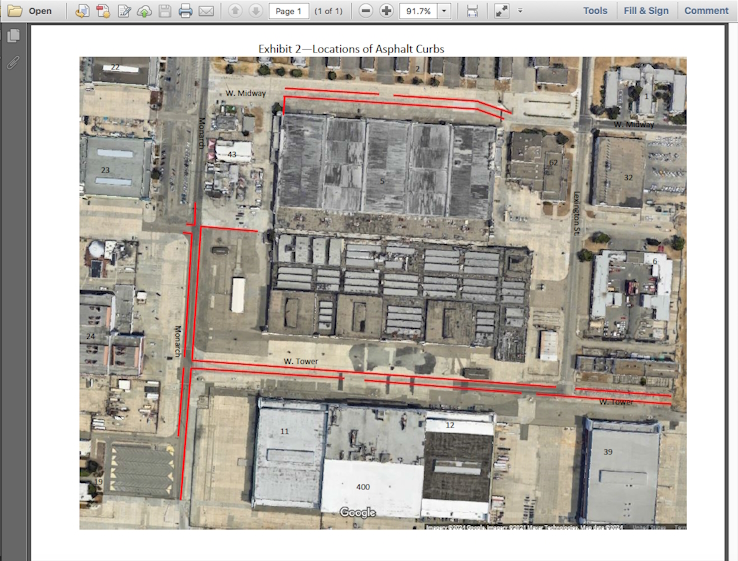Mounting Frustration With Local Problem Requires City Council Approval

By Larry Freeman
APD will go to the City Council on the evening of Tuesday, May 7th to request the purchase of two aerial drones which could be used to gather evidence on such matters as tracking vehicle involvement and whereabouts for a host of public safety problems as out of control sideshows, violent crimes, hostage situations natural disasters and other significant threats to public safety.
APD is seeking to inform the council and obtain approval to add to its public safety took kit the acquisition and deployment of “Uncrewed Aerial Systems” (UAS), the formal moniker for drones.
A Draft Policy provision in APD’s Agenda Item 7-D, asks the Council to give the go ahead to conduct future public hearings on the matter, stating that their cameras in the sky “will assist in mitigating use of force, bring resolution to critical incidents, enhance public safety, and mitigate overall risk.”
UAS’ prospective benefits are contextualized by a much more specialized purpose, namely the use of vast open space concrete and asphalt areas of the former Naval Base for sideshow events, which have plagued Alameda and Oakland.

The Council Agenda heading reads “Alameda’s Approach to Preventing and Enforcing Unpermitted Sideshow and Car Show Events at Alameda Point,” underscoring the vexing nature of these car culture, flash mob style events and the toll they take on APD’s resources to handle the problem not to mention the safety and well being of the general public and local businesses that can have access reduced or totally cut off.
In recent months APD has had some success in mitigating the sideshow problem, according to an interview with APD Chief Nishant Joshi, by “sending a bill” for the cost of police services deployed to shut down one event.
That proved enough of a deterrent that when APD got wind of another sideshow slated by its online promoter Chief Joshi contacted the individual and warned them to call it off or face similar consequences of what amounted to a punch to the pocketbook.
In some cases, APD has used standard police procedure and made arrests, cited participants and seized vehicles as well.
Two areas are often the site for these unauthorized and unlawful gatherings of renegade motorheads who relish in showing off their driving skills and vehicles while doing donuts with spinning tires releasing plumes of burnt rubber smoke into the air as wheels screech.
One chosen site for the evebts is the former Alameda Naval Air Station runway that borders the west end of the Alameda/Oakland estuary and the other common areas are just southwest at some of the open expanses near the former Rockwall Winery

Other sideshow mitigations APD seeks involve closing in the wide open spaces of portions of West Midway, West Tower and Monarch Streets with temporary asphalt curbs to hinder participants and observers who may come in force of a hundred or more vehicles.
APD also recommends installation of 6 gates and two areas of fencing to create choke points at locations around the curbing which will limit egress and easy escape routes when it comes to police wanting to identify perpetrators, identify vehicles breaking the law and impeding their ability to flee the scene in ways that have traditionally been available

Operator/owners of Dash and Urban Legend wineries have told ANN about the sideshow’s negative impact on business whereby patrons who with to come or go to their locales cannot leave or enter during the events.
Additionally, they have said that both winery workers and customers are afraid to confront the crowds and cars for fear of their safety, stating that they believe some sideshow attendees are armed and hostile.
If approved, the drones would be operated by a trained and certified APD officer and compliant with FAA regulations.
Other proposed uses for the drones involve much more than cutting down sideshow events. They include, in part, use in all felony and violent crimes, barricaded suspects, hostage situations, active shooters, apprehension of armed and dangerous fleeing suspects, and high-risk search warrants, lost persons, crime scene preservation, investigation of suspected explosive devices, rescue events and fire suppression in conjunction with AFD.
Aware that some opponents of using the technology might voice privacy concerns, APD ran their draft proposal by “Secure Justice,” a Civil Liberties and privacy rights advocacy group that has reviewed multiple UAV programs in the region, including that of Oakland.
In a letter to all Council Members and APD Chief Joshi, Secure Justice’s Executive Director, Brian Hofer, gave a sound endorsement of the program, with one small difference regarding the time span for retaining data.
He wrote, in part, that “Chief Joshi’s proposed policy mirrors Oakland’s with specific authorized uses that have a public safety utility and do not target First Amendment protected activities, a clear chain of command for approval of use, and an express prohibition on weaponization and facial recognition.
We are comfortable that if use adheres strictly to the policy, civil liberties and privacy will be adequately safeguarded. “
The letter added that, “Alameda will be among the best in class as to the rules governing UAV use.”
In line with that, APD’s proposal states that the department “ is committed to safeguarding and respecting the privacy of the community.”
The APD proposal lists extensive privacy protection and protocols towards that end under their Draft Policy attachment, section 4. For more click on this link and go to agenda item 7-d:
Michael Robles Wong, independent of his role as an HOA leader exploring the use of private License Plate Readers for Harbor Bay Isle community (story to come), underscored his support for the drone policy saying that using them to target sideshows would provide a larger deterrent effect for crime overall.
“I feel these repeated and growing public acts of flaunting lawlessness, invite more serious criminal acts by others into our town when there does not seem to be any APD repercussion for the participants. And, we have seen reports of injuries and property damage associated with these shows,” he wrote.
Robles Wong appears to envision and support prospective uses of drones with greater specificity than did APD in its policy use statement which includes use at “Special events where there is intelligence that there is risk to public safety.”
Robles Wong cites prospective events “where there may be known security concerns,” and mentions street fairs, parades and demonstrations as examples.
None of the seven letters sent to the Council in advance of the Tuesday night meeting or anything from APD mentioned whether particular traditional events as Alameda’s famed Fourth Of July Parade or The Park Street Fair could be subject to drone surveillance.
APD’s use of the term “intelligence” would presumably have to involve reliable, fact based information of a threat to public safety that rises to at least the level of “reasonable suspicion” on order to permit drone deployment for police monitoring of a public event that is generally protected by The Fourth Amendment.
Bike Walk Alameda, while endorsing APD’s overall plan to tackle sideshows, including hardening street infrastructure, took strong issue with the drone component of the proposal, arguing that such a purchase will detract from other traffic enforcement needs.
Without mention of the proposed multi purpose, crime related and other public safety uses for the drones beyond traffic safety, the letter states, “ We do not support pursuing drones at this time, however, because we’re concerned doing so will be contentious, time-consuming, and distract from unmet traffic enforcement needs throughout Alameda.”
One Alameda resident objected via her letter to the Council to the use of drones, characterizing them as military equipment .
Kaitlin Alcontin wrote, in part, of her concern about drone deployment that arose from hearing parts of an APD public meeting at The Main Alameda Library. What she heard spurred her to write to The Council and assert that “drones will do nothing to counter the issue of law enforcement being seen as an ‘occupying force’ which AB 481 aims to address.”
That law and the ensuing California Government Code 7071(d)(1) to which she refers states that a civilian governing body should not give approval for use of military equipment unless “the military equipment is necessary because there is no reasonable alternative” and it will “safeguard the public’s welfare, safety, civil rights, and civil liberties.”
It is not likely that any part of those provisions apply to police use of drones as the precedent of their classification as non military devices is well established, based on their common use statewide by non military government agencies acting in the interest off public safety.
Ms. Lecontin closed her letter by asserting that “APD has not met its burden to show that military equipment is the only reasonable method of achieving officer and civilian safety. Furthermore, drone surveillance comes with a slew of civil rights and civil liberties concerns.”
